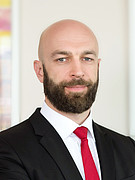|
Dear clients and cooperation partners,
In this mid-year edition of Belarus IP Highlights, we share some market development trends ‒ based on statistical data which became available recently ‒ plus the latest news on changes in Belarus IP laws as well as high-profile cases.
MORE NEW LICENCES AND FRANCHISES
In 2017, the total number of patent and trademark applications in Belarus increased compared to the previous year. A significant increase also occurred in the number of licence agreements and franchises. The Belarusian patent authority registered 771 IP agreements, including 428 licences, 258 assignment agreements and 85 franchising agreements.
For instance, in 2017 such franchises as Reserved, SPAR International, Paul bakery, and Carl’s Junior entered the Belarusian market. The wave of fast food entries observed in 2014 – 2017 seems to be coming to an end, giving way to Western apparel and retail trademarks and franchises.
MORE CONTENTIOUS CASES IN COURT, FEWER BEFORE THE PATENT AUTHORITY
In 2017 143 IP lawsuits were considered by the IP Panel of the Supreme Court of Belarus (14.4% more than in 2016), including 80 copyright cases and 63 cases in the area of industrial property. Foreign companies were involved in 23 (19.2%) of them. Of the 9 court decisions that were subject to supervisory review, all remained in force.
In 2017 the Appellate Board, formed at the Belarusian patent authority as the pre-trial instance in certain categories of cases, resolved 47 disputes (12% fewer than in 2016). The prevailing number of disputes was related to legal protection of trademarks (88.6% of cases). Of the 9 Appellate Board decisions that were appealed to the Supreme Court, to date only one appeal has been partly satisfied.
UPCOMING LEGAL CHANGES
Throughout 2017 and the first half of 2018, Belarusian lawmakers have worked hard to enhance legal protection of intellectual property rights in the country. Certain amendments to the Copyright Law are expected in 2018. These concern both classic copyright and IT.
Classic copyright
- authors will be able to conclude an oral licence agreement on using copyright in periodicals.
IT
- the concept of open licences as a simplified mechanism for concluding licence agreements will be introduced for the first time ‒ this change is expected to facilitate and simplify content distribution;
- the minimum compensation for copyright infringements will change (from approx EUR 100 to approx EUR 10);
- the list of cases allowing free usage of IP will be extended: these will include free use, e.g. for educational purposes, for access by individuals with disabilities, and so on.
NOTE: Under the new regulations, if a licence agreement does not mention its term of validity, it is considered as concluded for three years but in the case of an open licence – for five years. However, if an open licence concerns computer programs and databases, it is considered as concluded for the entire term of validity of the particular exclusive right.
Сhanges to the Advertising Law were presented for public discussion. The most significant changes include the following:
- a plan to exclude rules compelling foreign companies to engage local models for producing advertising materials in Belarus; the current rule ‒ introduced back in 2004 and stipulating that only images of models with Belarusian passports can be used in outdoor advertisements ‒ caused considerable difficulties for foreign brands, so their life should now become easier;
- advertising on transport will not require approval from the state authorities; besides, the new law simplifies the authorisation procedure for outdoor advertising;
- restrictions will be introduced regarding spamming.
Reforms already affect the Patent Law. Under amendments in force from 7 July 2018:
- the maximum period of validity for a utility model patent is up from 8 to 10 years;
- an invention, utility model, or industrial design will be considered as in the public domain after termination of exclusive rights; however, a patent suspended because of unpaid patent fees will not pass into the public domain due to the possibility of restoring the patent within 12 months of the missed deadline;
- medical care methods are excluded from the list of patentable objects;
- customers under R&D agreements may now apply for a patent.
Other changes in IP laws over the past year:
- regulations for maintaining the Eurasian Economic Union Customs Registry of Intellectual Property were approved; these aim to significantly simplify protection of right holders and reduce financial and time costs; however, it is still not clear when these regulations will start to operate;
- the new version of the Competition Law, in force from 3 August 2018, generally simplifies combating unfair competition; besides, antitrust rules now apply to non-commercial organisations as well, but still cannot be relied on against an individual.
OUR SELECTION OF TOP IP CASES
Trademark hijacking
After a big case in 2016, when ABC was found guilty of unfair competition for using packaging similar to that of КАМАКО, ABC registered the brand in its own name. As a result, KAMAKO challenged the registration and claimed unfair competition before the Supreme Court ‒ and won the case. This proves that local legal tools are available in practice to protect right holders from unauthorized registrations, even though combating hijacking in Belarus is generally quite challenging.
KAMAKO PACKAGING

|
ABC PACKAGING

|
ABSOLUT successful in countering a local infringer
The Swedish company claimed that registration of certain trademarks, in particular “АБСОЛЮТНЫЙ КЛАСС ABSOLUTЕ Сlass”, by a Belarusian company violates the rights of the Swedish company to the trademark “ABSOLUT” because registration may mislead consumers. The Belarusian Supreme Court ruled that ‒ despite the existence of dissimilar elements ‒ the trademarks in dispute are associated generally with the “ABSOLUT” trademark, so they are confusingly similar. The claim was satisfied and registration of the trademarks by the Belarusian infringer was declared invalid. This case shows that matters regarding similarity to the extent of confusion are decided on a case-by-case basis, and it is hard to identify consistent practice in this area.
BELARUSIAN COMPANY

|
SWEDISH COMPANY

|
Turning down discount-related advertisements in pharmacies
| The Belarusian competition authority accused certain pharmacies of improperly advertising discounts. The position of the authorities is as follows: while reducing drug prices is not prohibited, spreading information about discounts violates the Advertising Law, since it stimulates purchasing drugs without consulting a doctor. |
 |
Combating multiple infringements across the Baltics and Eurasia on behalf of Crossfit, Inc.
 |
In 2018 Sorainen continues supporting Crossfit, Inc. in several jurisdictions, specifically combating trademark infringements by numerous gym owners. The client owns the self-developed trademark-protected CrossFit® training, which it licenses to certified gyms worldwide to provide training. In many countries, Crossfit, Inc. faces non-certified gyms that offer “crossfit” training and use the word "crossfit" in their promotional materials without authorisation. |
The Sorainen team has successfully combated infringers in the Belarus-Baltic region, as well as coordinating campaigns in Ukraine and Kazakhstan. Most infringements have been eliminated as a result of negotiations. |








